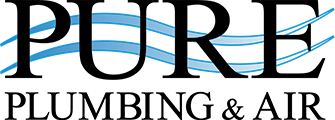Homeowners find it disconcerting to find a puddle of water near the refrigerator, and many assume that it is an indication that a new refrigerator is going to be required in the near future. Most of the time, however, the problem is easily remedied. The primary challenge for the average homeowner is to identify the source of the leak, because there are several different potential causes.
How to Troubleshoot Leaks from Your Refrigerator
Clogged Defrost Drain
If the water is pooling inside the refrigerator and then spilling onto the floor, the problem is most likely a clogged defrost drain. A refrigerator produces moisture during the defrost cycle, which then drips through the defrost drain and into a pan beneath the refrigerator. The drain can clog from debris, or it can become ice-bound. The location of your defrost drain varies by model. In most units, however, it is located underneath the vegetable or fruit drawers at the bottom of the refrigerator. Remove the drawers and check to see if there is water standing underneath them. If so, it will be necessary to clear the clog. Usually, you can clear an ice blockage by pouring a little warm water on the drain. This method will often clear a debris plug, but for a stubborn plug, it might be necessary to insert something to break the clog.
Overflowing Drain Pan
In an ideal situation, the water collected in the drain pan evaporates quickly. Certain conditions, however, can slow the rate of evaporation and cause the pan to overflow. For example, if the climate is excessively humid, evaporation may not be able to keep pace with the defrost cycle. More often, the drain pan is out of place or cracked. Depending on the model, it will be necessary to either pull the bottom kick plate on the front or pull the refrigerator away from the wall to access the pan from the back. Make sure that the pan is in its proper location and undamaged.
Deteriorated Door Gaskets
Refrigerators have gaskets or seals on their doors that can deteriorate over time. If the gaskets lose the ability to form a tight seal, the refrigerator must work harder to try to maintain a proper temperature. As a result, excess condensation can accumulate on the coils and leak onto the floor. Cleaning the seals with mild dish soap, rinsing well and then applying a thin coating of petroleum jelly may solve the problem temporarily, but the chances are that the seals will need to be replaced soon. If it is certain that the seals are good, the problem might be the angle at which the refrigerator is sitting; if the tilt leans forward, the gaskets can lose their ability to form a proper seal. Most refrigerators have adjustable feet that allow homeowners to level the unit.
Loose or Damaged Ice-maker Line
To have an automatic ice-maker or dispense water through the door, it is typically necessary to run a water line to the refrigerator from a water source, such as the kitchen sink. Once the line enters the refrigerator, it connects to a line in the refrigerator that carries water to the door dispenser or ice-maker. These lines can leak at any point along the route or at connecting points. If the leak is near the back, the issue probably lies with the line entering the refrigerator or its connection, and replacing the line or tightening the connection will usually solve the problem. If the refrigerator is leaking at the front, the problem is probably the line that is located inside the door. Repairing this line requires skills that are beyond those of the average homeowner, so it is often necessary to call an appliance repair technician.
For Additional Assistance
A leaking refrigerator can damage the floor and even the sub-floor, so it is best to stop the leak as soon as possible and then call a professional to make sure the fix is permanent. Pure Plumbing offers high-quality plumbing services at competitive prices for customers in the Las Vegas metropolitan area as well as Boulder City and Henderson. If you need the expertise that only an experienced licensed plumber can provide, please contact us today by calling (702) 710-7388.
